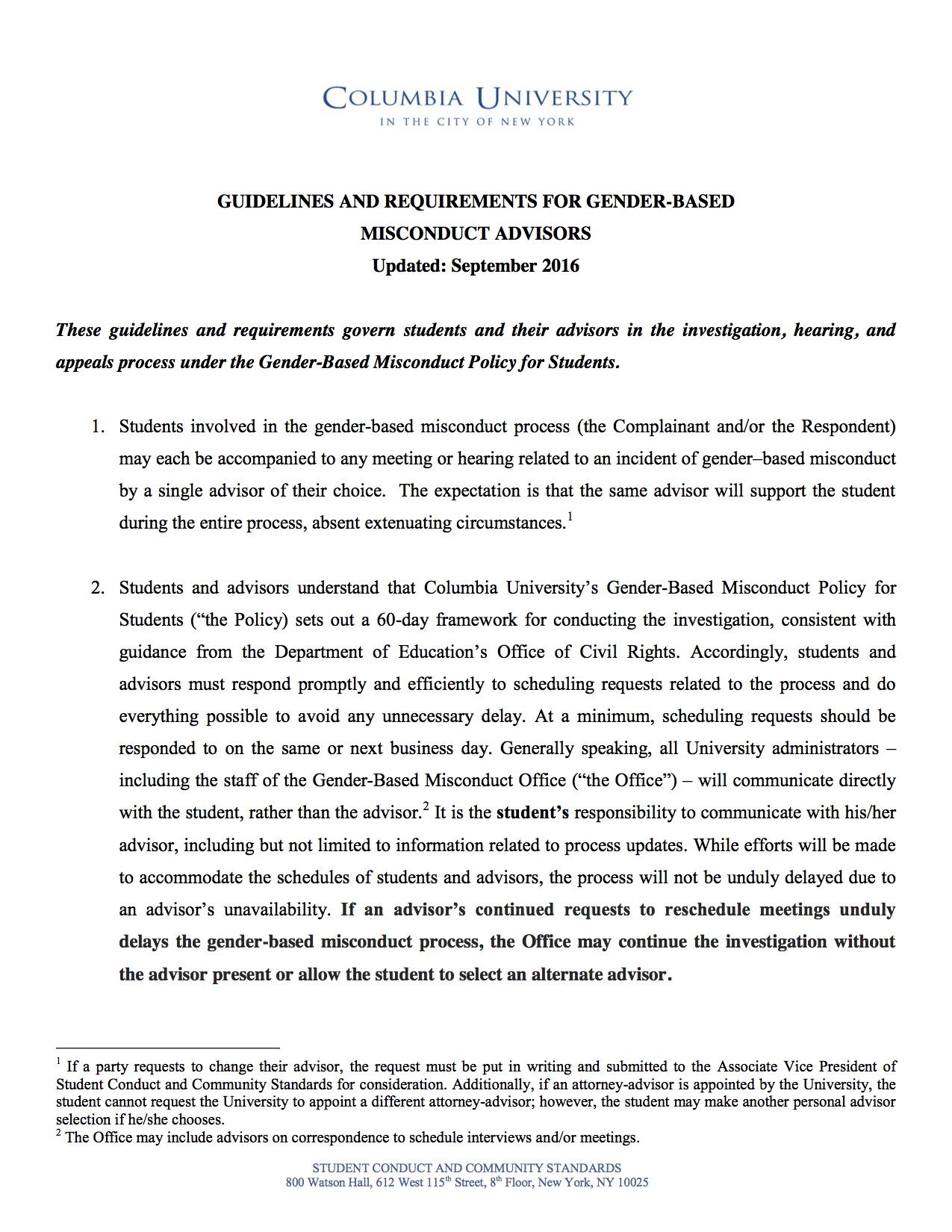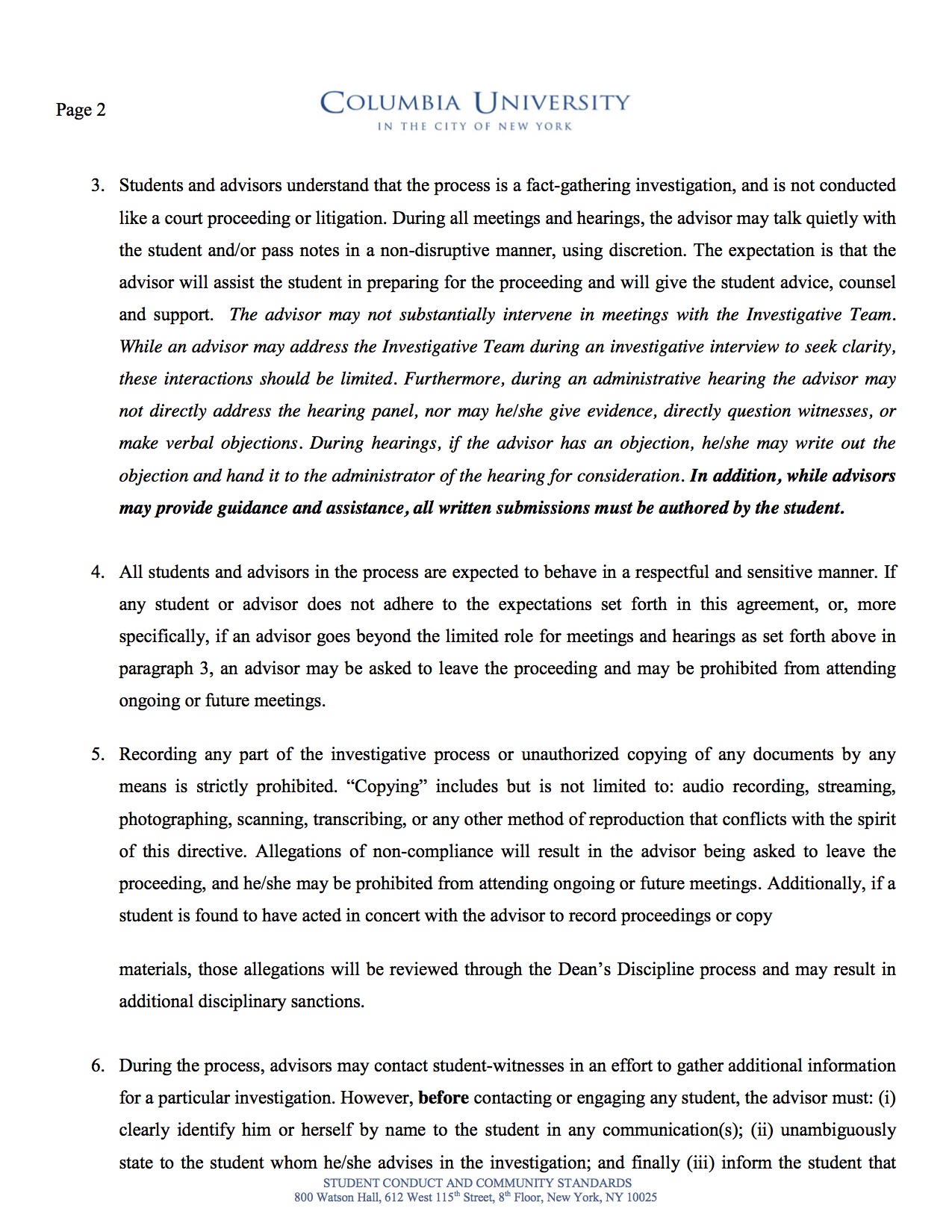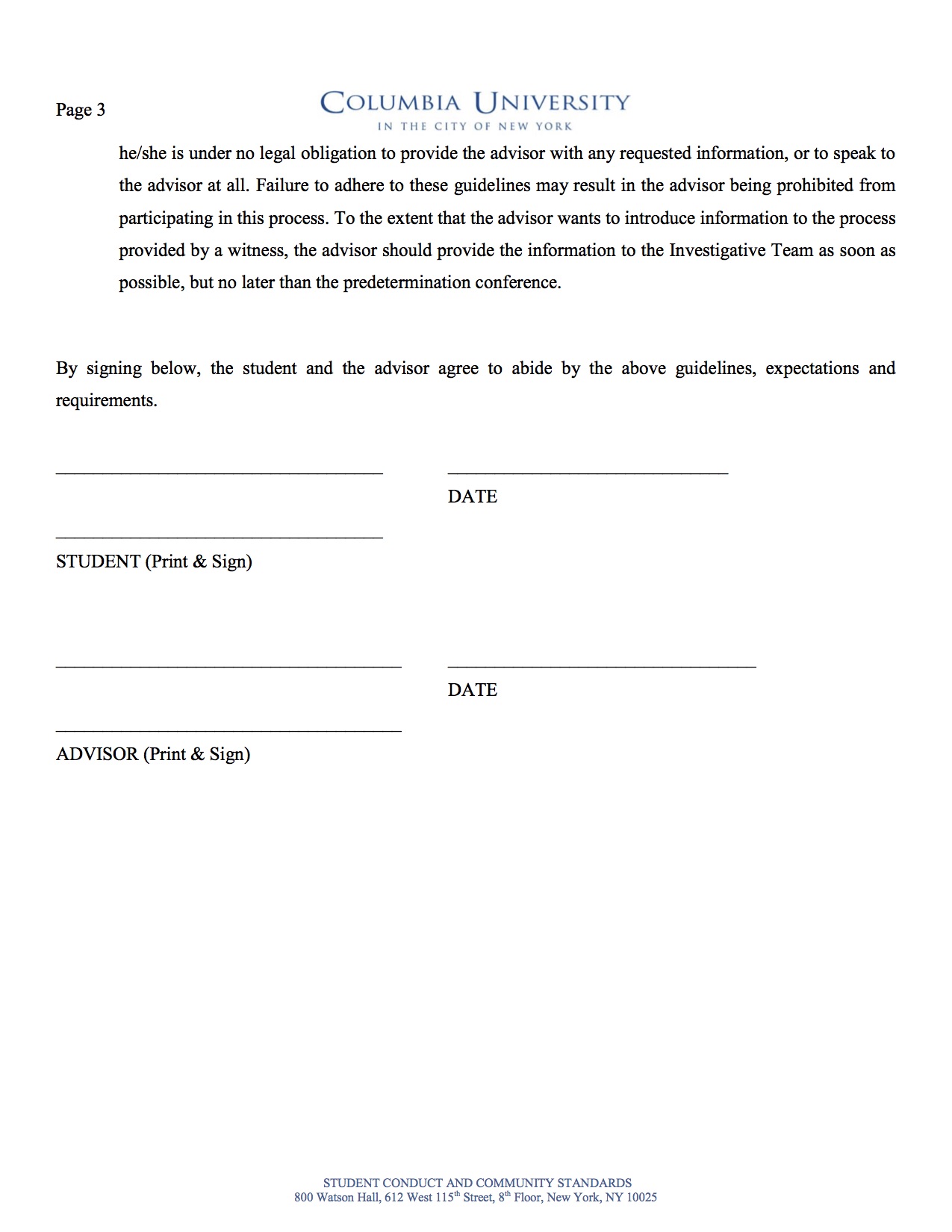We are thrilled to announce Columbia University has stopped forcing students and their advisors to sign a form stating they will not record the Gender-based Misconduct process. While the recording ban is still handed out to students, Columbia has declined to discipline students who openly violated the contract.
This change is due to the hard work of the students, faculty, and allies who supported the #RightToRecord campaign. To the 740+ people who signed the #RightToRecord petition, those who posted pictures online as part of the #RightToRecord hashtag campaign, those who attended the rally on October 28, and the survivors who bravely stepped forward and shared their stories, we thank you.
In particular, we want to acknowledge the organizations who endorsed our #RightToRecord petition: UAW Local 2110, UAW Local 2110-Barnard Contingent Faculty, UAW Local 2110-Graduate Workers of Columbia, Black Law Students Association, Columbia Divest for Climate Justice, Columbia Queer Alliance, Empowering Women of Color, Students for Justice in Palestine, International Socialist Organization, Latino/Latina Law Students Association, Take Back the Night, OutLaws, Mobilized African Diaspora, Divest Barnard, Columbia If/When/How, Columbia HeForShe, End Rape on Campus, Black Law Students Association-Northeastern Region, Our Harvard Can Do Better, Silence is Violence, and Sun Devils Against Assault.
There is still a tremendous amount of work to be done to address sexual and dating violence on campus. Survivors, particularly Black survivors and survivors of color, continue to face increased violence and discrimination. We are still committed to fighting for a 24/7 rape crisis center and Title IX enforcement, and will work tirelessly until every SAAFE campus demand is met. However, the success of the #RightToRecord campaign proves we have the power to help make Columbia SAAFE.
In love and solidarity,
No Red Tape Columbia
P.S. Want a rundown of the #RightToRecord campaign from inception to victory? Check out our #RightToRecord webpage here!





